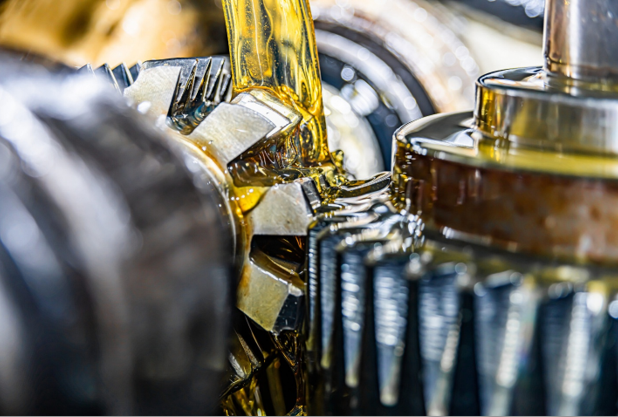Different Types of Industrial Lubricants

In every industry, it is crucial to maintain the machines and equipment and always keep them in top condition. This will help in costly repairs, avoid breakdowns and delays, and the machine and equipment will last longer. You can do this easily and effectively by using the right lubricant for that. The term lubricants is not just about reducing friction, but it is also used to protect machines and equipment surfaces from corrosion, minimise wear and tear. It also improves the efficiency and lifespan of the machinery. In this blog, we’ll explore the different types of industrial lubricants, their applications, benefits, and tips on choosing the right one for your equipment.
What are the Uses of Industrial Lubricants?
Industrial lubricants are used for many reasons. The following are some of those uses:
- They used to reduce the friction in machinery. They act as a protective layer between the moving parts of the machines, ensuring they are functioning properly and smoothly. This also helps reduce the wear and tear of machines.
- Another useful thing about industrial lubricants is that they prevent the machinery from corrosion. The lubricant acts as a barrier and stops them from getting moist. This also prevents rust formation in metallic surfaces.
- They are also used for cooling down the heat that is generated during operation. The generated heat is controlled by industrial lubricants, which prevent overheating.
- Lubricants prevent contamination by helping to trap and carry them away.
- Industrial lubricants greatly save the machinery from wear and tear and keep the machinery in top condition and fully functional. This increases not just the overall performance of the machinery, but it also increases the long-lasting time of the machinery.
Different Types of Industrial Lubricants
Industrial lubricants play an important role in factories, construction sites, automotive plants, and even food and pharmaceutical facilities. However, not all lubricants are the same. Each type is specially formulated to handle unique operating conditions and performance requirements. These industrial lubricants come in all kinds of forms, made from different materials and all made for special uses and applications. Understanding these different types will help you understand where they are best used and which one is the right one for the operation. The following are some of the industrial lubricants, their applications they are used for and what benefits they bring:
Industrial Greases
Greases are thicker than oils and stay in place for long periods, making them ideal for parts that cannot be lubricated frequently. They are widely used in bearings, gears, and joints that face high pressure and are exposed to dust or dirt.
Benefits
- Provides long-lasting protection under harsh conditions
- Offers sealing properties to prevent dust and contaminants
- Works effectively in high-pressure environments
- Reduces the frequency of re-lubrication
Industrial Waxes
Industrial waxes cover surfaces with a solid or semi-solid layer of protection. They are useful for shielding equipment against rust, corrosion, and environmental harm, but they are not frequently employed as lubricants for moving parts.
Benefits
- Excellent protection against moisture and corrosion
- Provides a long-lasting protective barrier
- Useful in specialised applications like mould release
Food Grade Lubricants

Food-grade lubricants are non-toxic and meet strict safety standards, making them suitable for industries where contamination risks must be avoided. They are widely used in food processing, packaging, and pharmaceutical equipment.
Benefits
- Non-toxic and safe for use in sensitive environments
- Reduces risks of contamination in consumer products
- Meets the standards for safety
Synthetic Lubricants
These kinds of lubricants are made chemically, and they are able to perform under extreme conditions where other mineral oils stop working. Synthetic lubricants are most commonly used in places where high performance and durability are crucial, such as aerospace, high-speed machinery and industries.
Benefits
- Excellent thermal and oxidative stability
- Works efficiently in both high and low temperatures
- Longer service intervals compared to conventional oils
- Provides superior protection and energy efficiency
Gear Oils
Gear oils are heavy-duty lubricants created to withstand extreme pressure and friction between gear teeth. They are commonly used in industrial gearboxes, heavy machinery, and automotive transmissions.
Benefits
- Offers extreme pressure protection
- Minimises friction and wear
- Ensures smooth power transfer between gears
- Extends the service life of gear systems
Conclusion
Industrial lubricants are more than just greases. They serve a great purpose in supporting and protecting machinery. If you are looking for hydraulic oil for your machinery and industry, then 123 Oil is an ideal choice for you.




